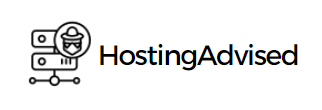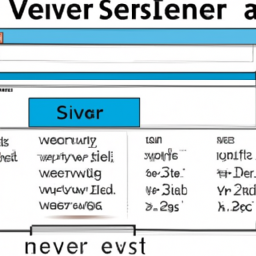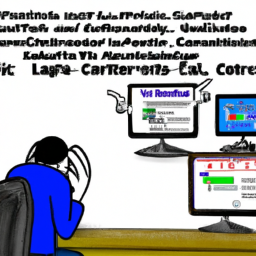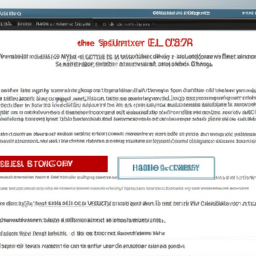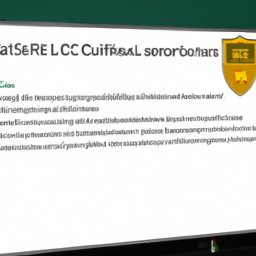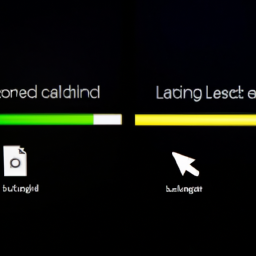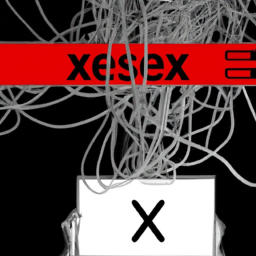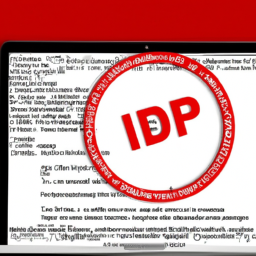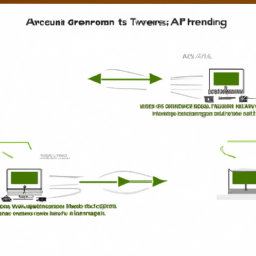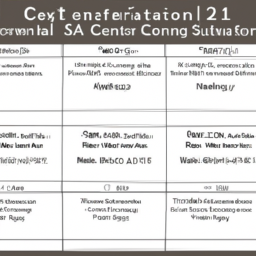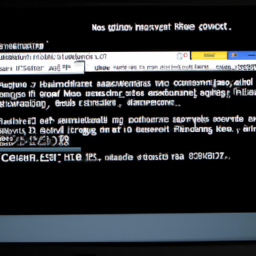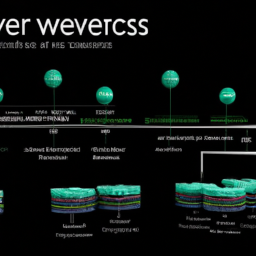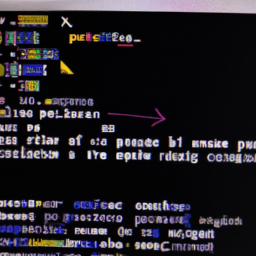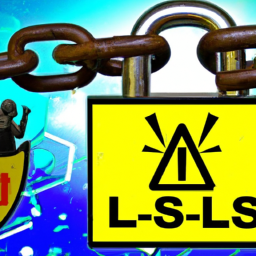So, you think you’ve got your web hosting all figured out? You’ve carefully chosen a reliable hosting provider, optimized your website’s design and content, and maybe even implemented some fancy features. But here’s a little secret: all your hard work can go down the drain if you don’t pay attention to one crucial aspect – memory usage.
Yes, that’s right. Exceeding memory limits in web hosting can have a profound impact on your website’s performance, user experience, search rankings, and even your bottom line.
Imagine a slow-loading website, frustrated visitors, and lost revenue. Doesn’t sound too appealing, does it?
In this article, we’re going to delve deep into the consequences of exceeding memory usage limits in web hosting. We’ll explore how it affects your website’s performance, the implications for user experience, the SEO and search ranking consequences, and the potential loss of revenue and customers.
But fear not! We’ll also provide you with practical tips and strategies to mitigate these memory usage issues through regular monitoring and maintenance.
So, buckle up and get ready to dive into the world of web hosting memory usage. It’s time to ensure your website is running at its optimal performance and maximizing its potential.
Key Takeaways
- Exceeding memory limits in web hosting can negatively impact website performance, user experience, search rankings, and revenue.
- Slow-loading websites can lead to frustrated visitors and higher bounce rates.
- Inadequate memory allocation can compromise website security and tarnish brand reputation.
- Regular monitoring and optimization of memory usage are essential to maintain optimal website performance and prevent future problems.
Effects on Website Performance
Exceeding memory limits in web hosting can really slow down your website’s performance, making it frustrating for your visitors to navigate and enjoy your content.nnWhen your website uses more memory than allocated, it puts a strain on the server resources, leading to slower loading times and decreased website speed. This can result in higher bounce rates as visitors get impatient and leave your site before it even fully loads.nnSlow website performance can also have a negative impact on your search engine rankings, as search engines prioritize fast-loading websites.nnUltimately, exceeding memory limits can harm your user experience, causing visitors to have a poor impression of your website.nnIn the next section about user experience implications, we will delve deeper into how this affects your website’s overall performance.
User Experience Implications
When your website’s memory usage exceeds its limits, it can have a significant impact on the user experience.
Users may become frustrated and dissatisfied with the slow loading times and unresponsive features. This can lead to decreased engagement and conversions as users are more likely to abandon your site and go elsewhere.
Additionally, the negative impact on your brand reputation can be long-lasting, as users may view your website as unreliable and unprofessional.
Frustration and Dissatisfaction
Despite exceeding memory limits, web hosting services often leave customers frustrated and dissatisfied. When a website surpasses its allocated memory usage, it can lead to numerous issues that negatively impact user experience. Slow loading times, frequent crashes, and unresponsive pages are just a few of the problems that users encounter.
This frustration and dissatisfaction can have serious implications for customer retention and overall business success. Dissatisfied customers are more likely to abandon a website and seek alternatives that offer better performance optimization. As a result, businesses may experience decreased engagement and conversions.
To prevent this, it’s crucial for web hosting services to ensure that memory limits are sufficient for their customers’ needs. This will lead to improved user experience, increased customer satisfaction, and ultimately drive better business outcomes.
Decreased Engagement and Conversions
You’ll find yourself swimming against the current, struggling to keep your audience engaged and converting, as your website’s performance takes a nosedive due to inadequate memory allocation by your web host. Increased bounce rates and compromised website security are just some of the consequences you’ll face. With limited memory, your website will slow down, leading to frustrated users who are more likely to abandon your site. This decreased engagement directly impacts your conversions, as visitors are less likely to make purchases or complete desired actions. Additionally, inadequate memory can compromise your website’s security, making it vulnerable to attacks and putting your users’ data at risk. As a result, your brand reputation will be negatively impacted, as customers lose trust in your ability to provide a reliable and secure online experience.
Negative Impact on Brand Reputation
Insufficient memory allocation from your web host can tarnish your brand’s reputation, eroding customer trust and confidence in your ability to deliver a secure and reliable online experience.
When your website exceeds its memory limits, it can lead to slow loading times, frequent crashes, and overall poor performance. This negatively affects your brand visibility, as customers are more likely to abandon a website that is slow and unreliable. Additionally, dissatisfied visitors are less likely to return, resulting in decreased customer retention.
A tarnished brand reputation can have long-lasting consequences, as word-of-mouth spreads quickly in the digital age. Therefore, it’s crucial to ensure that your web hosting plan allows for sufficient memory allocation to support your website’s needs.
Moving forward, let’s explore how exceeding memory limits can impact your SEO and search rankings.
SEO and Search Rankings
Enhancing your website’s performance through efficient memory usage can greatly influence its SEO and search rankings. SEO optimization is crucial for ensuring your website appears at the top of search engine results, and search engine algorithms take various factors into account when determining rankings. One of these factors is website performance, which includes how quickly your website loads and how efficiently it uses memory. If your website exceeds its memory limits, it can result in slower loading times and decreased overall performance, negatively impacting your SEO and search rankings. To better understand the impact, consider the following table:
| Memory Usage | Website Performance | SEO and Search Rankings |
|---|---|---|
| Below Limit | Fast and efficient | Improved |
| Exceeding | Slower and unstable | Decreased |
Exceeding memory limits can lead to a loss of revenue and customers, as visitors are more likely to leave a slow and unreliable website.
Loss of Revenue and Customers
Losing customers and revenue is a real concern when your website is slow and unreliable. If your website exceeds its memory usage limits, it can result in a poor user experience, causing visitors to abandon your site and seek alternatives. This directly impacts customer retention and can lead to a significant loss in revenue.
Slow loading times and frequent downtime can frustrate users and discourage them from making purchases or engaging with your business. Additionally, dissatisfied customers are more likely to spread negative word-of-mouth, further damaging your reputation and potential customer base.
It is crucial to address memory usage issues promptly to avoid these financial implications. By optimizing your website’s memory usage and ensuring it stays within limits, you can provide a seamless user experience and retain valuable customers.
Transitioning into the next section, let’s explore effective strategies for mitigating memory usage issues.
Mitigating Memory Usage Issues
To prevent your website from becoming a slow and unreliable nightmare, let’s dive into some effective ways you can tackle those pesky memory hiccups. Memory optimization is crucial for maintaining optimal performance.
Start by identifying memory-hungry processes and optimizing their usage. Reducing unnecessary plugins, themes, and extensions can also free up valuable memory.
Another approach is to enable caching mechanisms, such as opcode or object caching, to minimize the need for repeated database queries. Troubleshooting techniques like profiling and monitoring can help pinpoint memory leaks and inefficient code.
Regularly monitoring and maintaining your website’s memory usage is essential to prevent future issues. By setting up alerts and conducting routine checks, you can proactively address any memory-related problems.
Transitioning into the next section, let’s explore the importance of regular monitoring and maintenance for a well-functioning website.
Regular Monitoring and Maintenance
To continue mitigating memory usage issues, it is essential to regularly monitor and maintain your web hosting server. This ensures optimal performance and prevents any potential problems from arising. Regular monitoring allows you to identify any spikes in memory usage and take immediate action to address them. Maintenance tasks such as clearing cache, optimizing databases, and removing unnecessary plugins or extensions can help free up memory resources. Additionally, monitoring and maintaining resource allocation is crucial for server optimization. By keeping track of how resources are being utilized, you can make informed decisions about allocating memory more efficiently. Implementing a regular monitoring and maintenance routine is key to keeping your web hosting server running smoothly and avoiding memory-related issues.
| Benefit of Regular Monitoring and Maintenance | How it Helps | |||
|---|---|---|---|---|
| Identifies spikes in memory usage | Immediate action can be taken | |||
| Clears cache, optimizes databases | Frees up memory resources | |||
| Removes unnecessary plugins or extensions | Reduces memory usage | |||
| Helps in efficient resource allocation | Enhances server optimization | Helps in efficient resource allocation | Enhances server optimization and improves overall system performance. |
Frequently Asked Questions
How does exceeding memory usage limits affect website security and potential vulnerabilities?
Exceeding memory usage limits can have a detrimental impact on website security and potential vulnerabilities. When memory usage exceeds limits, it can lead to decreased website performance and slower loading times. This can negatively affect user experience, as visitors may encounter slow page load times or even website crashes.
Additionally, exceeding memory limits can create security vulnerabilities, making the website more susceptible to attacks and compromises. It’s crucial to monitor and manage memory usage to ensure optimal website performance and security.
Are there any legal implications or consequences for exceeding memory usage limits in web hosting?
Exceeding memory usage limits in web hosting can have serious legal implications and consequences. When you surpass the allocated memory, you may violate the terms of service or user agreement with your hosting provider, leading to account suspension or termination.
Additionally, exceeding memory usage limits can result in poor website performance, increased downtime, and potential loss of customer trust. It’s crucial to monitor and manage memory usage to avoid these legal and operational issues.
Remember, "Better safe than sorry."
Can exceeding memory limits lead to downtime or server crashes?
Exceeding memory limits in web hosting can have a significant impact on downtime and server crashes. When memory usage exceeds the allocated limits, the server may become overwhelmed and unable to handle incoming requests, leading to downtime.
Additionally, if the server lacks the necessary resources to manage the excess memory usage, it may crash, resulting in a complete shutdown.
It’s crucial to monitor and manage memory usage to prevent these issues and ensure smooth server operation.
What are the potential long-term effects of consistently exceeding memory usage limits?
Consistently exceeding memory usage limits can have significant long-term consequences for your web hosting. It can lead to a decline in performance, causing your website to become slow and unresponsive. This can result in a decrease in user satisfaction and engagement, leading to a potential loss of customers.
Additionally, it can strain your server resources, increasing the risk of downtime and server crashes. It’s crucial to monitor and optimize memory usage to avoid these detrimental effects.
Are there any specific industries or types of websites that are more susceptible to memory usage issues?
Some industries impacted by memory usage issues in web hosting include e-commerce, media streaming, and gaming. These industries often require high levels of data processing and storage, leading to increased memory usage.
Common causes of memory usage issues include inefficient coding, large file sizes, and high website traffic. It’s crucial for businesses in these industries to monitor and optimize their memory usage to ensure uninterrupted website performance and user experience.
Conclusion
In conclusion, exceeding memory usage limits in web hosting can have a significant impact on your website’s performance, user experience, SEO rankings, and overall revenue.
By understanding the implications and taking steps to mitigate memory usage issues, such as regular monitoring and maintenance, you can ensure that your website remains fast, reliable, and profitable.
Don’t let memory constraints hold you back from reaching your online potential. Take control and optimize your website’s memory usage today!
